5 Easy Ways to Reduce Your Tax Bill (Before the end of the Year)
- Make an RRSP Contribution
Contributing to a registered retirement savings plan reduces your earned income and (depending on the amount you contribute) can put you in a lower income tax bracket. If you are a salaried employee where taxes are deducted from your income at the source, you will receive a tax refund from the CRA once you file your taxes. If you are self-employed, making an RRSP contribution will reduce the amount of taxes you owe when you file. This handy RRSP contribution calculator on our website will give you an idea of how much you save in taxes depending on the amount you earn and contribute.
Although the RRSP contribution deadline for 2021 is not until March 1, 2022, the end of the year is a great time to consider making a contribution when bonuses are received. Consider setting some of that excess cash-flow aside for contributions prior to spending it on holiday shopping.
- Income Split Using a Spousal RRSP
A spousal RRSP is another great tool to help high-income earners reduce their overall tax bill. If you earn more and expect to be in a higher tax bracket in retirement than your spouse, contributing to a Spousal RRSP will even out your household income in retirement. Contributions made now will be deducted by the contributing spouse and any withdrawals made from the Spousal RRSP in retirement will be taxed in the hands of the lower-income spouse.
Again, this is a great time of year to consider this strategy prior to the March 1, 2022 contribution deadline as there are some administrative requirements that might take some time to set up.
- Realize Capital Losses
This time of year is a great opportunity to take a closer look at your portfolio and make any required changes to minimize your tax burden. If you hold investments in non-registered accounts, and your portfolio has benefited from a strong year of returns, you could have a hefty capital gains tax bill on your hands. Take advantage of tax-loss selling to offset those gains by selling any losers in your portfolio. If you hold investments in your portfolio that are down but that you still feel confident about and would like to hold in the long-term, you are able to repurchase these after 30 days while still realizing a capital loss.
Taxes should never be the main motivator for making investment decisions, but the impact it can have on your net-worth also cannot be ignored, so make sure to speak to your financial advisor before making any decisions that could affect your financial goals.
- The Business Owner Advantage – Keep Profits in Your Corporation
2021 has been a great year for the markets and for many businesses as well! If your business has been extra profitable this year, consider maintaining some of those profits in your corporation and investing them instead of paying it out to yourself as extra income (such as an end of year bonus).
The first benefit of this strategy is that you will pay less in taxes by leveraging the corporate tax rate (12.2% for the first $500,000 in 2021, compared to 52.75% for the top 2021 marginal personal income tax rate in Ontario). The second benefit is that investing your company’s profits in a corporate account will also most likely result in lower taxes if your business qualifies for the small business tax rate, which allows you to earn up to $50,000 of passive investment income at the preferential rate of 12.2% vs. 20.5%.
- The Business Owner Advantage – Take Dividends vs. Salary
If you are an incorporated business owner, you have the flexibility of choosing how much you pay yourself and the form of payment. In the strategy above, we discussed tweaking how much you pay yourself to lower your personal income taxes. Another option is to pay yourself in dividends instead of salary. The benefit of doing this is that dividends are taxed much more favourably than income. You can also earn up to $40,000 of eligible dividends (if your business qualifies for this) without incurring personal income taxes.
This strategy might be better employed in the year ahead, but it’s always a good idea to start thinking about it now so that you have time to plan and handle any administrative aspects that are required to set this up. As always, we recommend that you consult with your financial advisor and accountant before proceeding with either of these strategies, as they are not always advantageous to all and depend on your particular circumstances.
Carolina da Silva is a Marketing Specialist with Raymond James Ltd. Information provided is not a solicitation and although obtained from sources considered reliable, is not guaranteed. Raymond James advisors are not tax advisors and we recommend that clients seek independent advice from a professional advisor on tax-related matters. The view and opinions contained in the article are those of the author, not Raymond James Ltd. Raymond James Ltd., member of Canadian Investor Protection Fund.

